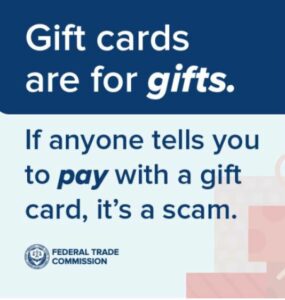Please note: TDS Telecom is not aware at this time of anyone impersonating TDS
Did your local TV or cable provider call with an offer  to lower your monthly TV, cable, or internet bill in exchange for a pre-payment or fee? It wasn’t them. It was a scammer, and you’re not alone. This year, the FTC has gotten thousands of reports — including many from older adults — about scammers pretending to be Spectrum to try to trick people out of their money or personal information.
to lower your monthly TV, cable, or internet bill in exchange for a pre-payment or fee? It wasn’t them. It was a scammer, and you’re not alone. This year, the FTC has gotten thousands of reports — including many from older adults — about scammers pretending to be Spectrum to try to trick people out of their money or personal information.
Here’s how the scam often works: You get a phone call, recorded message, or text with an offer to lower your monthly payments. The caller — or the person who picks up when you call the number they give you — says you need to “prepay” part of your bill to qualify. They tell you to pay using gift cards because they’re partnering with a company for a promotion, and to call them back with the gift card number. Once you do, they collect that and other personal information over the phone.
If you get a call like this, here are a few things to know:
- Never give out your personal, account, or payment information to someone who contacts you out of the blue and demands it. Hang up. It’s a scam.
- Don’t trust caller ID. Scammers can fake caller ID so it shows a company’s name or phone number. And never call back a number from a recorded message or listed in an unexpected email or text.
- Don’t pay for anything with a gift card. Gift cards are for gifts. If anyone tells you to pay with a gift card, or to buy gift cards for anything other than a gift, it’s a scam. You’ll lose your money, and you won’t be able to get it back.
For more information on these types of scams, visit ftc.gov/imposters. And if you spot this, or any scam, report it to the FTC at ReportFraud.ftc.gov.
Thanks to the Center for Elder Law and Justice for sharing reports about this scam through the FTC’s Community Advocate Center (CAC). This program helps groups that provide free or low-cost legal services with reporting fraud and other bad practices on behalf of their clients. For more information about the Community Advocate Center, visit ReportFraud.ftc.gov/community.
By Kira Krown, Consumer Education Specialist, FTC

No comments yet.